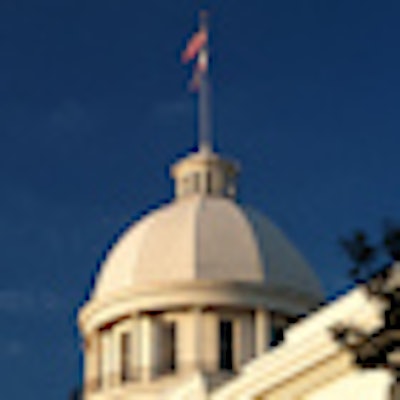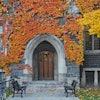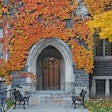
Sarrell Dental, a fast-growing chain of nonprofit dental clinics based in Alabama, is declaring victory in a dispute with leaders of the state's dental profession after lawmakers approved Sarrell's version of a bill regarding who has oversight over the company.
Sarrell CEO Jeffrey Parker called the June 2 passage of the bill "a huge victory for the children of Alabama and Sarrell Dental." The measure passed "as Sarrell Dental wrote it; the Alabama Board of Dental Examiners has no oversight over nondentists."
In addition, the bill was approved by the Legislature even though "it faced very aggressive opposition from members of the dental board during the public hearing," Parker added. The bill, which had the support of the Alabama Dental Association (ALDA), is now awaiting Gov. Robert Bentley's signature.
“All Sarrell Dental ever wanted was to be left alone; that day has now come.”
— Jeffrey Parker, CEO, Sarrell Dental
"The Alabama Dental Association supported the legislation, and I am pleased it passed, since it reflects a joint effort by the Board of Dental Examiners of Alabama and Sarrell Dental Clinics to find common ground and put this issue to rest," the group's executive director, Zack Studstill, DDS, wrote in an email to DrBicuspid.com.
HB 451 requires nonprofit dental clinics like Sarrell to register with the state Board of Dental Examiners. But it does not subject them to more stringent regulations, despite earlier attempts to force the company to get special permits.
Although dentists and hygienists are regulated by the state dental board, Alabama's Dental Practice Act requires that nonprofits be owned or operated by dentists, so Sarrell was not recognized as a legal entity.
"We have seen over 250,000 patient visits with zero consumer complaints to the dental board," Parker noted. In addition, the company has reduced the cost of patient care from $328 per patient visit in 2005 to an "industry low" of $125 per patient visit in 2010, he said.
'Tarnished image'
Parker said he was very concerned about the "tarnished image Alabama dentists have suffered in the last year" and that the actions of a "few angry dentists caused tremendous harm to the profession and UABSOD's [University of Alabama at Birmingham School of Dentistry] image."
In April 2010, the UAB School of Dentistry decided to remove students from the Sarrell clinics, where they had been getting hands-on clinical training -- a move Parker said was due to a turf battle with private practitioners and pressure from alumni dentists. But the university said a lack of proper faculty supervision was the reason students were taken out of training rotation at the Sarrell clinics.
The U.S. Federal Trade Commission subsequently launched an investigation into whether the ALDA engaged in unfair competition or deceptive acts by allegedly refusing to deal with Sarrell.
Sarrell then filed a lawsuit against the ALDA, claiming the organization had launched an "illegal conspiracy" to drive the clinic out of business.
Parker said the company will drop the antitrust litigation as a "goodwill gesture" when Gov. Bentley signs the bill.
Too successful?
Parker claims Sarrell's success is to blame for ongoing antagonism between the company and the dental board. Sarrell, which serves mainly poor children and is the largest single provider of Medicaid dental services in Alabama, has grown considerably since it opened in 2005. It now has 11 clinics, staffed by 52 dentists and 27 hygienists. Revenue has increased from $2.3 million in 2006 and is on track for as much as $15 million this year, Parker said.
Critics have said that Sarrell started as a charity clinic but now only takes those with Medicaid or private insurance.
Sarrell provided nearly $400,000 worth of free dental care in 2010, according to Parker, and the clinic will treat children even after they've exhausted the $1,500 per year maximum benefit.
"We do the work whether we get reimbursed or not," he said, noting that 70% of the care provided by Sarrell's mobile dental van is not paid for.
Others have said the secret to Sarrell's impressive financial success results from incentives and production quotas.
The majority of Sarrell's dentists are salaried, but some pediatric specialists receive a percentage of their patients' reimbursements, Parker said -- something that is common in private practice, he pointed out.
"All Sarrell Dental ever wanted and asked for was to be left alone to do good work for the children of Alabama that have no access to dental care," Parker said in a statement. "That day has now come."



















